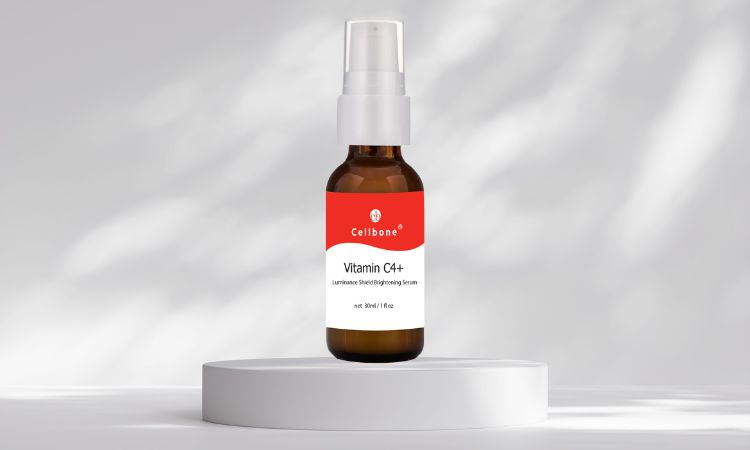Your skin is getting beaten up daily, even when you do not notice. Sunlight, car exhaust, cigarette smoke, city smog, and even that late-night fast-food run, all leave their mark. Though sunscreen, and a good night’s sleep go a long way, there is another unsung hero you might not be giving enough credit to: absolute vitamin C.
You are likely familiar with vitamin C as the stuff reach for when you feel a cold coming on, but your skin? It loves this nutrient just as much your immune system does. Just imagine vitamin C as that friend who is always there, whether rain or shine, to pull you out of a jam. The jam here is sun damage, dark spots, premature lines, and the dullness that pollution leaves behind.
However, how does it work? Does smearing on Absolute vitamin C truly combat all that sun and dirty air? These are the types of questions to explore further, nobody wants to spend hours upon hours layering 15 different products hoping to achieve glowing and healthy-looking skin.
A Little Science with a Big Payoff
As sunlight hits your skin, it creates free radicals which are unstable molecules. So does pollution. These mischievous little thieves basically go and rob (take electrons) from your healthy skin cells. Translation? They cause oxidative stress that leads to faster aging, uneven skin tone and even a breakdown of collagen.
Vitamin C comes in there. It’s an antioxidant powerhouse, which means it neutralizes free radicals before they wreck the place. It’s like a molecular pause on skin damage. Better still, Vitamin C helps your body produce more collagen which is the protein that keeps your skin bouncy and smooth.
Sun Protection Without Being a Sunscreen
Note: vitamin C does not substitute sunscreen. Instead, think of it as a bodyguard that partners with SPF. Research has indicated that vitamin c indeed increases the effectiveness of sunscreen as it provides an additional protection against the effects of UV. The duo curbs the occurrence of brown spots, rough surface, and fine lines which tend to sneak up when the sun’s been a little too friendly.
And yep–sun exposure is cumulative. Your 10-minutes walk to get your morning coffee does count. Vitamin C works daily to reduce that damage, even when you don’t notice it right away.
Fighting Pollution Like a Pro
Residing in a city? Your skin is exposed to smog, dust, car exhausts, and cigarette smoke, even when you are not a smoker. Skin can appear dull, pores can get clogged and collagen may be broken down by pollution. Vitamin C puts that in control by preventing oxidative stress and ensuring that your skin heals quicker.
It lightens your skin tone. Vitamin C slows down melanin production, which is what causes dark spots and uneven tone. Dermatologists usually prescribe it to patients who experience discoloration due to pollution.
Daily Skincare Made Simple
To get even better results from your vitamin C serum, consider adding an SPF to your routine. Vitamin C can help reduce the appearance of dark spots and fine lines, but it can make your skin more sensitive to the sun. So, make sure you finish off your routine with a broad-spectrum sunscreen to protect your skin from harmful UV rays and keep that radiant glow intact.
Cleansing matters too. Starting with a gentle facial cleansing gel clears away dirt and pollution particles, so your vitamin C serum can sink in without having to fight through layers of gunk. That simple two-step combo—cleanse and apply vitamin C—can already put you ahead in the skincare game.
Quick Recap: Why Vitamin C Rocks for Skin
- Neutralizes free radicals from sun and pollution
- Boosts collagen production
- Works with sunscreen to prevent extra damage
- Brightens skin by reducing dark spots
- Helps your skin recover from daily stressors
FAQs
Q: Can I just eat oranges and skip the serum?
A: Eating vitamin C-rich foods is great for your body, but your skin doesn’t get enough of it from diet alone. Topical vitamin C delivers it straight where it’s needed.
Q: Is vitamin C safe for sensitive skin?
A: Most people do fine, but if your skin is sensitive, start with a lower concentration (like 10%) and see how it feels. Look for formulas labeled as gentle or buffered.
Q: Morning or night?
A: Morning is best since it helps defend against daytime damage from sun and pollution. Always follow with sunscreen.
Q: How soon will I see results?
A: Some people notice brighter skin in just a couple of weeks, but collagen-boosting effects (like firmer skin) usually show up after 8–12 weeks of consistent use.
Q: Can I layer it with other products?
A: Yes, but avoid using vitamin C at the same time as strong exfoliants or retinol unless the product is designed to be layered. Otherwise, rotate them between morning and night.


